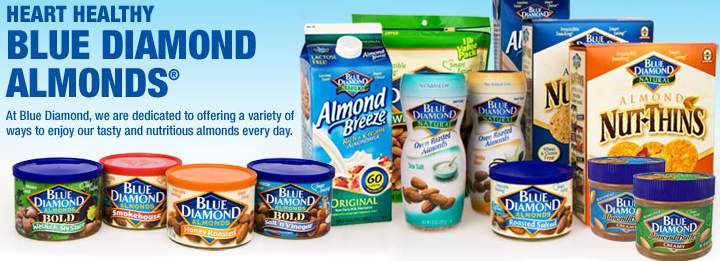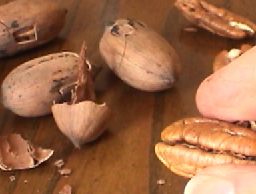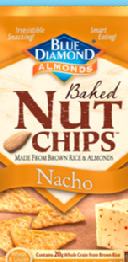Is it wise to cook or process
nuts?
Businesses are producing a wide variety of processed nuts,
some of which are cooked. Those businesses boast
that their products are healthy, but we are fools
to trust businessmen. Our current economic system focuses on sales and
profit, and businessmen have proven time after time that they are dedicated
to profit and stockholders, not consumers,
human health, or society. Therefore, we ought to wonder, how many of these
processed nuts are truly healthy or safe to eat?

I've eaten some freshly harvested pecans and macadamia nuts, and I
think they are delicious when warmed up to about 48°C (120°F). I've also had
fresh walnuts, and I love to toast them very briefly,
until their outer shell crackles. However, I think that higher temperatures
ruin the flavor of the nuts.
Some of the nut products have been flavored to such an extreme that
they have no resemblance to nuts. The nut is simply a carrier for the flavor.
For example, the cheese flavored almonds are delicious, but when I eat
them, all I notice is the cheese flavor. I don't see how the almond is
adding anything to the flavor. The almond seems to be just a crunchy carrier
for the flavored cheese powder, in which case, why waste money on the almonds?
Why not put the flavored cheese powder on something less expensive and
easier to digest, such as breadcrumbs, thereby creating a "flavored
crouton".
Or, if the cheese powder is truly safe to eat, then we could provide
people with the powder all by itself, and then we could sprinkle it on
to other foods. If we want something crunchy, for example, we could sprinkle
it onto chopped up carrots or celery stalks. This would give us a crunchy
cheese flavored food, but in a very digestible and healthy form.
Flavoring agents should be optional
The roasted almonds that are coated with a strong flavoring
agent are delicious, but it is flavoring powder that tastes good, not the
roasted almond. If the only way to attract you to a particular food item
is to add a very strong flavoring agent to it, then you ought to consider
that there is something wrong with that particular item, and that you should
not eat it. The exception would be for foods that we know are healthy for
us, but which we just don't like to eat, and there may be lots of them.
For example, we might discover that cartilage, tendons, eggshells, livers,
and certain bones can provide us with valuable nutrients or minerals. In
such a case, we could grind those items into a powder and mix them into
some other food, such as sausages.
If roasted nuts are truly nutritious for us, then we would be justified
to coat them with tasty powders, but are any of the roasted nuts good for
us? We ought to investigate the issue before we consume the processed nuts.
When I've eaten roasted nuts while my stomach is empty, it seems as if
my stomach has trouble digesting them. Perhaps the stomach irritation was
simply due to the very high fat content of nuts, in which case all we have
to do is reduce the quantity that we eat. However, I think we should investigate
the issue of whether stale or roasted nuts are truly healthy for us.
I think we should follow the philosophy that the flavoring agents should
be optional, and if they are a requirement
for a particular food product, then we should take a close look at why
it is a requirement for that particular food. It's possible that the food
is unnatural, which is why we don't want to eat it by itself. I don't have
to put any flavoring agents on a piece of cooked meat, at least not when
I cook it at a low temperature as I show in this series of files. I want
flavoring agents on my meat when it is overcooked or stale.
If the only way you will eat a food product is to dominate its flavor
with some other flavoring agent, then we ought to wonder, why are we eating
it? In regards to nuts, if the only way you will eat almonds, walnuts,
etc., is to cover them with flavored powders, or sugar and cinnamon, then
why are you eating them at all? Why not eat something that you enjoy?

I've had some freshly harvested walnuts and pecans, and I don't
have to put any sugar and cinnamon on them, or dip them into a cheese sauce.
I think walnuts and pecans are delicious when fresh, and since they ripen
during winter, I prefer to eat the fresh walnuts by briefly toasting them
so that the outer shell becomes slightly crispy, and the walnut warms up
very slightly. I toasted pecans for an even shorter period of time, simply
to warm them up a bit. I do not like cooked nuts, and stale nuts are not
very pleasant, either.
Since both of those nuts have a very faint flavor, I eat them as an
appetizer before a meal. This brings me to an issue that I mentioned in
the main file; namely, that I think it is best to eat the faint flavored
foods as appetizers at the beginning of a meal. If you eat walnuts
at the end of the meal, when you're not very hungry, they will seem bland,
and you will be tempted to add flavoring agents to them, in which case,
you are wasting the walnuts. You may as well eat pieces of flavored
bread crumbs.
Some nuts-related issues to investigate
|
• Is it wise to let factories mash
nuts into pastes that may not be consumed
for months or years? Or should we mash nuts only minutes
before we want to eat them? |
|
 |
|
• Some companies are producing a milk
made from almonds, but is a "nut milk"
really better for us than milk from cows, rice, or soybeans? |
|
|
|
• Is it wise to grind up nuts and bake them into such products as chips?
If so, should we allow these products to be produced months or years
before we consume them? Or should restaurants produce fresh
chips for us only when we are ready to eat them? |
|
 |
|
|